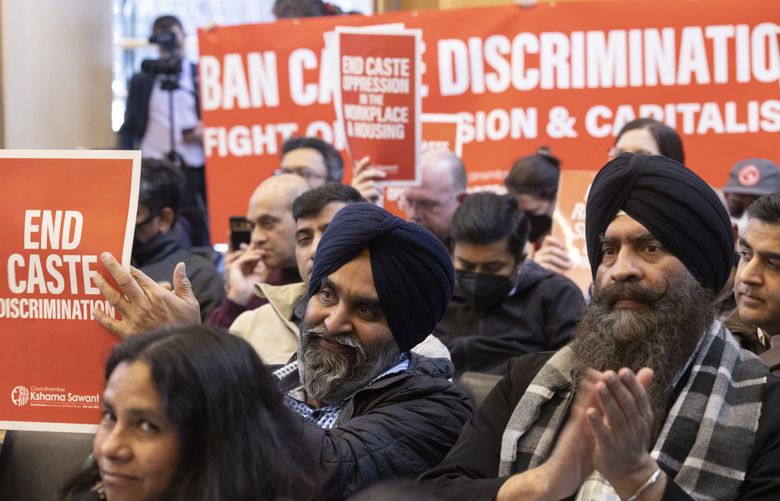
Seattle has become the first city in the United States to criminalize caste discrimination. The city council agreed on Tuesday to include caste in the city’s anti-discrimination statutes. The decision is especially significant for the area’s South Asian community, which has long advocated for such legislation. The issue of caste discrimination was especially prominent for the area’s Indian and Hindu minorities. The caste system in India is one of the world’s oldest forms of rigid social division.
The ordinance was approved by a vote of 6 to 1. Those who support the proposal argue that in the absence of such a law, those facing caste discrimination in the United States will have no recourse.
“This will be a systemic legal way to stop this from going on in Seattle,” said Preshant Nema, a local activist.
Some, however, believe that enacting the bill would harm the Indian population, particularly Hindu Americans, who already experience bigotry. Kshama Sawant, a socialist and the lone Indian American on the city council, defended the measure, claiming that the rule did not target any specific community. In fact, she claims that the law considers how caste prejudice spans national and religious lines.
Some schools and universities in the United States have also introduced anticaste discrimination clauses to their systems. According to Dalit activist-led organizations, caste discrimination is common in diaspora groups.
According to South Asian Americans Leading Together, there are roughly 5.4 million South Asians in the United States. People from Bangladesh, Bhutan, India, Nepal, Pakistan, and Sri Lanka are among them.
Caste discrimination was made illegal in India more than 70 years ago
The caste system in India dates back around 3,000 years and was based on one’s employment. It gave upper castes various advantages while oppressing inferior castes. The Dalit community is at the bottom of India’s Hindu caste system. Caste discrimination was made illegal in India more than 70 years ago. Yet, studies show that bias persists, with lower castes underrepresented in higher-paying positions.


